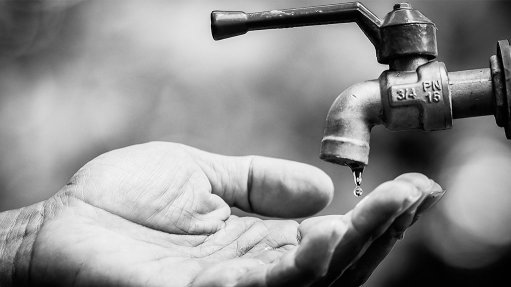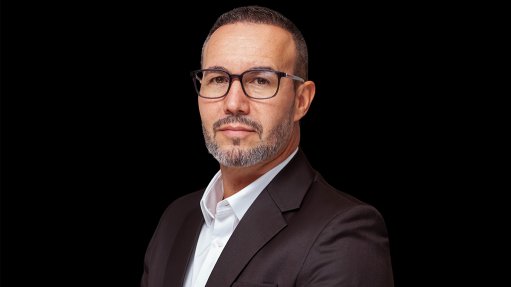New Omicron variant takes volatility and uncertainty to new levels
The end of the year is traditionally when we muse about the year gone by as we look to the one ahead. This is difficult at the best of times, but the Covid-19 pandemic has taken volatility and uncertainty to new levels.
For Southern Africa, all indicators were pointing towards 2022 as the year of recovery, but the UK’s knee-jerk reaction to the B.1.1.529 strain, also known as the Omicron variant, of SARS-CoV-2 – first reported to the World Health Organisation (WHO) by South Africa on November 24 – has thrown the region into a fresh economic crisis as international and regional airlines, hotels, board-and-breakfast facilities, lodges and game parks all face anew the chaos of international cancellations.
The UK government placed South Africa, Botswana, Namibia, Zimbabwe, Lesotho and eSwatini on its so-called ’red list’ on November 26, before the WHO had designated it a variant of concern. At the time of the announcement, the new variant had been found in South Africa, Botswana, Israel, Belgium, Hong Kong, the UK, Germany, Italy and the Czech Republic. Yet the UK, followed swiftly by the US, the European Union and other nations, put in place measures that effectively blocked travel to and from the entire Southern African Development Community (SADC) region. The ban comes just as vacationers from Europe and North America seek to take advantage of their Covid-19 vaccination status to escape winter at home with a holiday in the sun. As travellers scramble to cancel flights and bookings, combing through the small print in their insurance, the travel ban highlights the downside of being at the runt end of populist politics. Unlike the global shutdown of March 2020, backed by the WHO with its mandate to protect global health, this measure was prompted by the UK government’s failure to control domestic infections through mask wearing, social distancing and vaccine passports.
Dr Ayoade Alakija, co-chair of the African Union’s (AU’s) Vaccine Delivery Alliance, reacted strongly, calling the bans anti-African, not based in science, and plain wrong. South Africa’s President Cyril Ramaphosa – not one to shy away from tough measures – similarly called the travel ban unjustified and unscientific and urged the UK and its followers to lift restrictions. Nevertheless, the damage is done; Southern Africa faces a fresh economic crisis.
The emergence of the Omicron variant appears to fulfil predictions that failure to prioritise vaccinations for African countries would allow the coronavirus to continue to circulate and mutate there. When SARS-Cov-2 first emerged, health officials feared the pandemic would kill millions across Africa. However, for months, the WHO has described Africa as “one of the least affected regions in the world” in its weekly pandemic reports, despite the continent’s low vaccination rate.
Although South Africa has a better Covid-19 vaccination rate than most countries in Africa, with just under 25% of its population fully vaccinated, the average number of doses administered per 100 people on the continent is only 17.14. Seychelles, Mauritius and Morocco lead with 180, 147 and 130 doses respectively administered per 100 people, with the Democratic Republic of Congo trailing with 0.2 doses administered per 100 people. Botswana, where the new variant was reportedly first detected, has a relatively well protected population with 56.42 doses per 100 people. Alakija attributes Africa’s low vaccination rate to a combination of the global North hoarding vaccines and the failure of pharmaceutical companies to waive patents. Following news of the latest variant, US President Joseph Biden rejected claims that the US is hoarding coronavirus vaccines at the expense of middle- and low-income countries, including South Africa, noting that it had turned down additional vaccine doses just days earlier. However, the AU and Africa’s individual governments must also answer for their failure to buy vaccines when they are available, and to distribute existing vaccine supplies.
Covid-19 and the Omicron variant again highlight Africa’s high vulnerability to external shocks and the need for business and governments to build a response into their resilience planning. It is time for South African business and government to invest in local vaccine technology, to cut dependence on the science and supplies from the global North. South Africa, with its great history in medical science, has demonstrated it has the scientists and laboratories to detect and sequence coronavirus strains.
Southern Africa also needs greater self- sufficiency to protect against disruptions from globalisation’s just-in-time tyranny. South African supermarket chains such as Checkers and Pick n Pay have stepped up their “own brand” ranges as substitution for global brands to compensate for supply chain disruptions. The implementation of the African Continental Free Trade Agreement arrangements may help to manage volatility and uncertainty in facilitating the movement of people and goods – Covid-19 permitting – throughout Africa.
Tourism, too, could reduce its vulnerability to the winter sun market. The 2007 political violence in Kenya cost the country 7% of its gross domestic product in 2008 and took Kenya off the global tourism map for a couple of years. However, county governments worked with local tourism businesses to offer deals to tourists in neighbouring Tanzania, Uganda and Ethiopia. Over time, this has become regular business, making international tourism a welcome bonus but not essential for survival.
If the outcome of this latest shock results in business and government working together to build greater regional and pan-African resilience, the region will be far better placed to deal with the other dramatic changes that 2022 is likely to bring, starting with China’s newfound dominance amid news of its hypersonic weapon that brings every corner of the world under its reach. More of this in the New Year.
Article Enquiry
Email Article
Save Article
Feedback
To advertise email advertising@creamermedia.co.za or click here
Announcements
What's On
Subscribe to improve your user experience...
Option 1 (equivalent of R125 a month):
Receive a weekly copy of Creamer Media's Engineering News & Mining Weekly magazine
(print copy for those in South Africa and e-magazine for those outside of South Africa)
Receive daily email newsletters
Access to full search results
Access archive of magazine back copies
Access to Projects in Progress
Access to ONE Research Report of your choice in PDF format
Option 2 (equivalent of R375 a month):
All benefits from Option 1
PLUS
Access to Creamer Media's Research Channel Africa for ALL Research Reports, in PDF format, on various industrial and mining sectors
including Electricity; Water; Energy Transition; Hydrogen; Roads, Rail and Ports; Coal; Gold; Platinum; Battery Metals; etc.
Already a subscriber?
Forgotten your password?
Receive weekly copy of Creamer Media's Engineering News & Mining Weekly magazine (print copy for those in South Africa and e-magazine for those outside of South Africa)
➕
Recieve daily email newsletters
➕
Access to full search results
➕
Access archive of magazine back copies
➕
Access to Projects in Progress
➕
Access to ONE Research Report of your choice in PDF format
RESEARCH CHANNEL AFRICA
R4500 (equivalent of R375 a month)
SUBSCRIBEAll benefits from Option 1
➕
Access to Creamer Media's Research Channel Africa for ALL Research Reports on various industrial and mining sectors, in PDF format, including on:
Electricity
➕
Water
➕
Energy Transition
➕
Hydrogen
➕
Roads, Rail and Ports
➕
Coal
➕
Gold
➕
Platinum
➕
Battery Metals
➕
etc.
Receive all benefits from Option 1 or Option 2 delivered to numerous people at your company
➕
Multiple User names and Passwords for simultaneous log-ins
➕
Intranet integration access to all in your organisation


















